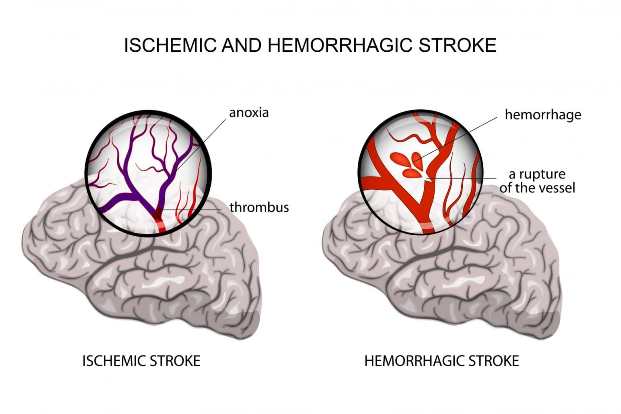What Are the Different Types of Strokes?
Apr 19, 2022
Stroke happens when the blood supply to part of your brain is cut off. Blood involved essential nutrients and oxygen to your brain. Without blood brain cells can be damaged or die.

Different types of stroke are follows:-
An ischaemic stroke- It is an when the blood supply to your brain is blocked by a blood clot.It starves your brain of the oxygen and nutrients it requires which damages your brain cells. If you get immediate medical attention for an ischaemic stroke the damage can be less.
Thrombotic stroke- A thrombotic stroke happens when a blood clot thrombus forms in one of the arteries that supply blood to your brain.Strokes are also more important to be fatal and strike earlier in men than in women. This stroke can leave you severely debilitated, paralyzed, or unable to communicate.
A transient ischemic attack (TIA) – It is like a stroke having similar symptoms but basically lasting only a few minutes and causing no permanent damage.Often known a mini stroke a transient ischemic attack may be a warning. About 1 in 3 people who have a transient ischemic attack will basically have a stroke with about half occurring within a year after the transient ischemic attack.A transient ischemic attack can serve as between a warning and an opportunity a warning of an impending stroke and an opportunity to take steps to prevent it. TIA is most important part and occur hours or days before a stroke seeking medical attention immediately following a possible TIA is essential.








